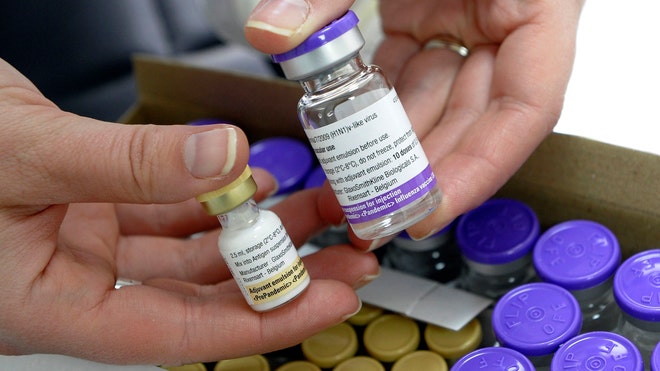
The flu is hitting young and middle aged people in the United States particularly hard this season, as a tough flu strain re-emerged and too few people were vaccinated, health authorities said Thursday.
More than 60 percent of all severe flu cases this season in the United States were in people 18-64 years old — or about double the usual rate, they said.
Typically, people at risk for flu complications include pregnant women, the elderly, children and people with compromised immune systems.
The main flu circulating this season is H1N1, otherwise known as the “swine flu” that caused a pandemic four years ago.
“It is back this year, and it is hitting younger people hard,” said Centers for Disease Control and Prevention chief Tom Frieden.
“One of the reasons,” he said, “is that the vaccination rate for young adults, 18-64, is too low.”
Only a third of all people in that age group were vaccinated as of November, compared to nearly two-thirds of children and elderly people, he said.
“That is one of the reasons we are seeing a much higher proportion of hospitalizations and death among 18-64 year olds than we generally see.”
People with underlying health conditions such as obesity, asthma, lung disease and diabetes are particularly vulnerable to dangerous bouts of the flu, leading to pneumonia and possibly death.
Although experts do not have a tally of US deaths yet this season, early indications suggest that there have been more deaths than normal in the 18-64 age group.
Over the previous three flu seasons, people age 18-64 represented only about 35 percent of all flu hospitalizations.
Last year the predominant flu type was H3N2, which accounted for fewer hospitalizations among middle aged people.
Getting vaccinated lowered the risk of having to see a doctor by about 60 percent for people of all ages, the CDC added.
“Vaccination is the single most important thing you can do to protect yourself against the flu,” Frieden said.
The flu is expected to continue to make people sick for the next several weeks across the United States.
The CDC recommends that all people over the age of six months get a flu vaccine each year.
Source: Yahoo news


